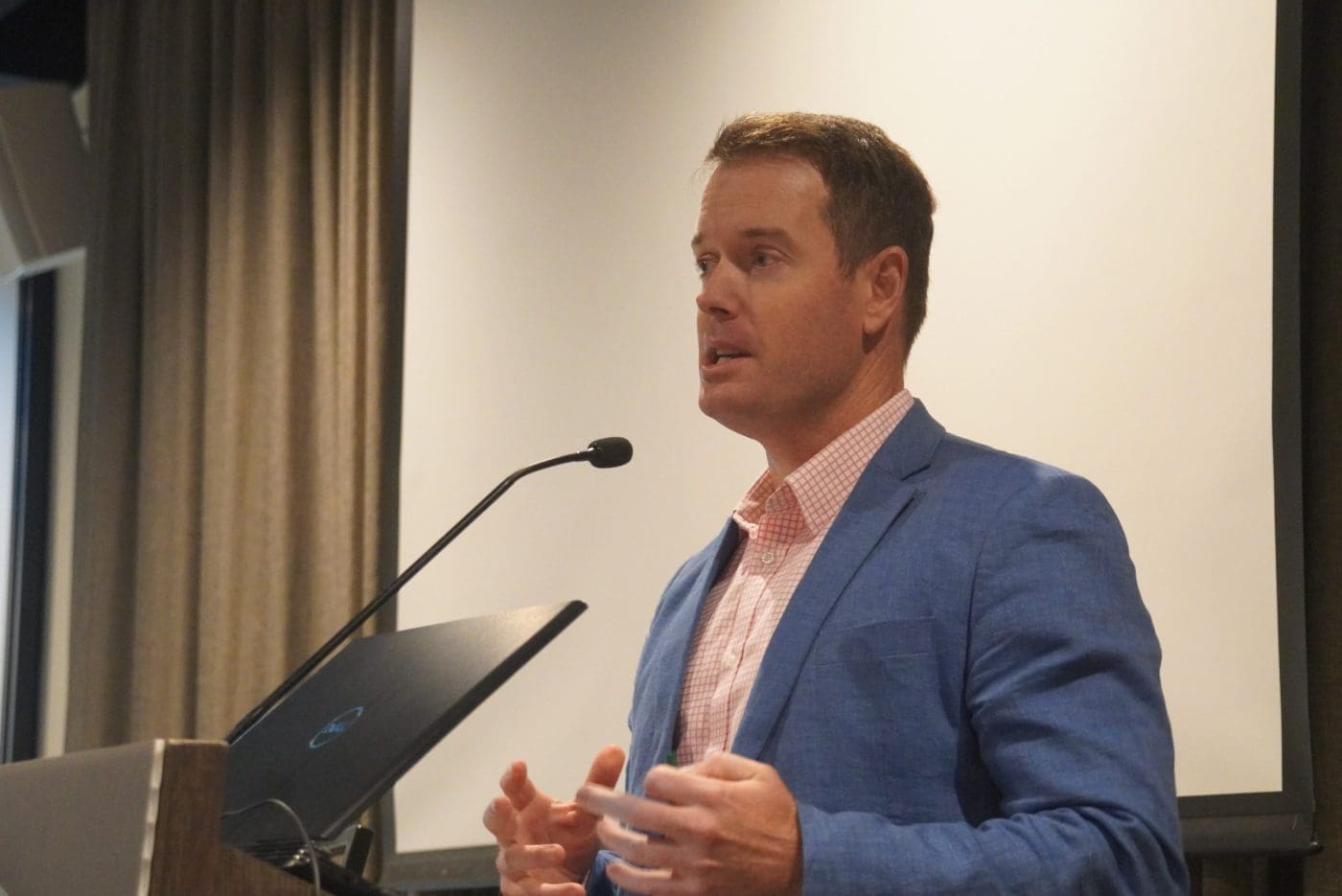
Ian McConnel
THE sustainability director of one of the world’s largest meat processing companies says it is likely producers will need to know their carbon number by 2030 – calling for National Vendor Declarations to include the information.
Tyson Foods’ Ian McConnel, who is the president of Global Roundtable for Sustainable Beef, told a Droughtmaster conference in Brisbane last week “ethical investors” were driving the sustainability goals for the company. Tyson is aiming for a 30 percent reduction in emissions by 2030.
“Right now, access to finance is by far our biggest driver for sustainability,” Mr McConnel said.
“We have ethical investors and shareholders telling us ‘you need to be good so I feel good giving you my money’. We also have companies buying our shares to get votes at our board table to make sure we set and meet targets.
“But it is good because it means we will be in a position to meet consumer trends.”
Mr McConnel said communicating improvements in environmental sustainability to consumers was one the biggest challenges for the company.
“We have a traceability system in Australia, but that traceability system does not enable me to tell a consumer anything about what you do,” he said.
“I think it should be enabled to do that and if there is anything we should be asking MLA and ISC to look into it is putting that information on NVDs.”
Opportunity for Australia
Tyson Foods is one of the world’s largest meat processing companies and operates a plant in Queensland’s Brisbane Valley. Mr McConnel said the company was likely to look favourably Australian beef if the country met its climate targets.
“We have committed to being carbon neutral by 2050 and as members of the Australian beef industry, you’re going to be neutral by 2030,” he said referring to the red meat industry’s carbon neutral by 2030 target.
“So, as we head to 2030 and we have to reduce our footprint there is a good chance Tyson is going to come knocking in Australia – and a lot of other companies will be the same if the numbers coming from farms are numbers we can use and they comply with international standards.”
Mr McConnel said the company was keen to see verification of carbon claims happen at an industry-wide scale.
“Our strategy isn’t to set up ‘Tyson-branded’ verification systems, because that means producers who invest in it are tied to us,” he said.
“It might sound nice to have, but it actually becomes a limitation. What we need is industry-scale systems that help bring through those verified claims – ideally on an NVD.”
Can beef be part of a sustainable meal?
Mr McConnel said carbon claims were becoming more important, with consumers not as keen on claims like “sustainable”.
“We have just done a bit piece of consumer research in the US, they know what the challenges are and they want specifics,” he said. “This is why organic is still a strong claim, because it is exactly as it says on the label.”
“But our new biggest consumer is the millennial and the claim with the highest willingness to pay more is a carbon claim. They know the biggest issue in the world – decarbonising the economy.”
Wearing his other hat as the president of the Global Roundtable for Sustainable Beef, Mr McConnel said he was heading to the next COP summit in Egypt later this year – where the idea of “what is a sustainable meal” will be explored.
“We will be demonstrating that beef can be part of that plate and we need to prove that beef can be there,” he said.
“We need to be able to prove it to policy-makers and to consumers because they don’t want broad claims.”
